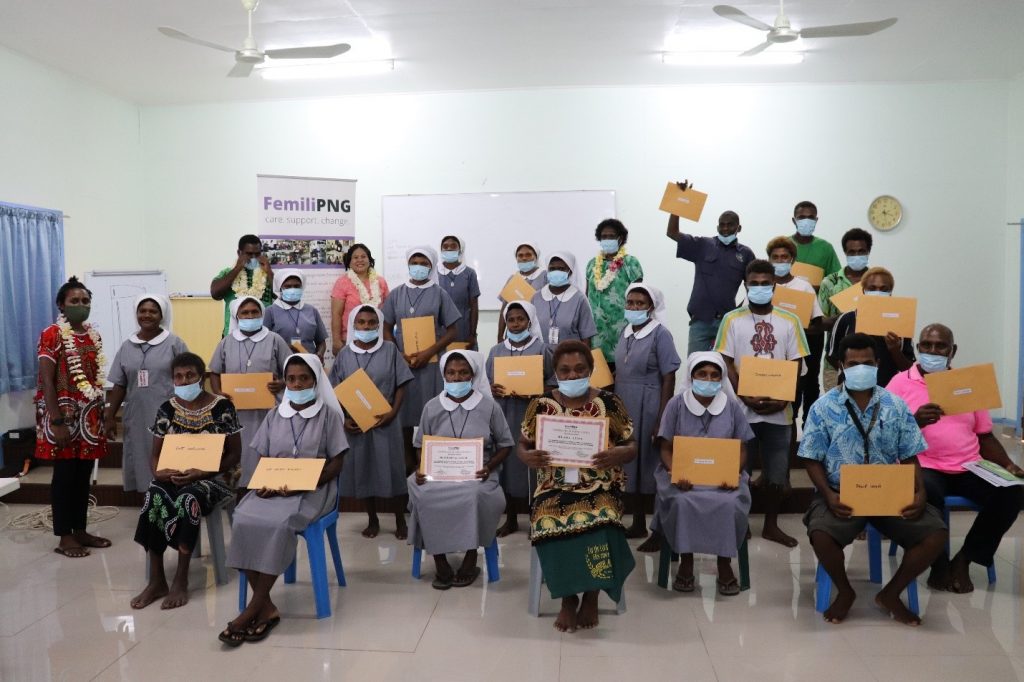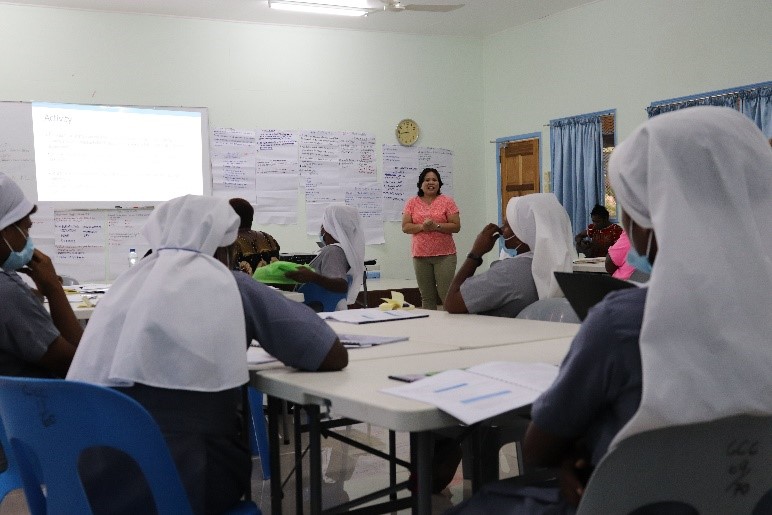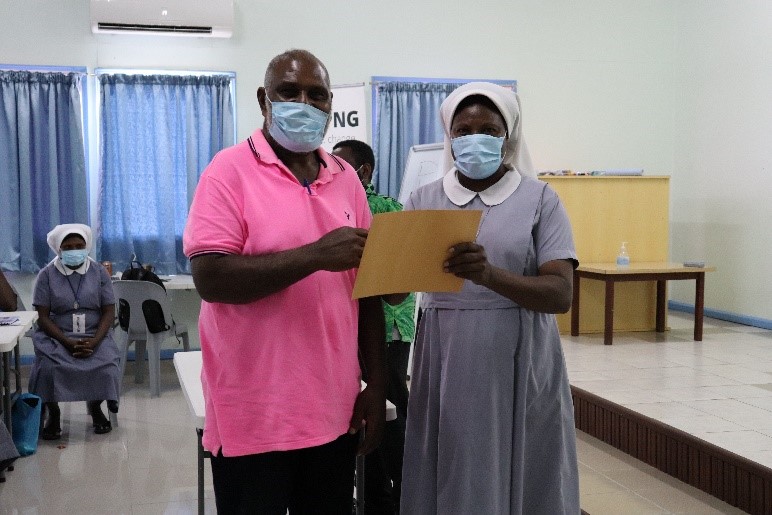Earlier this year, Femili PNG facilitated a five-day training from 25th to 29th January 2021 to 23 participants from the Couppe Meri Seif Haus and its partners in Kokopo, East New Britain Province.

The first three days of the one week training covered topics on family and sexual violence (FSV) issues in PNG, the United Nations Convention on the Rights of Children (UNCRC), child abuse and its effects, the Lukautim Pkinini Act 2015, the Convention on Elimination and Discrimination on all forms of Abuse on Women (CEDAW), different kinds of abuse, the Family Protection Act 2013, the cycle of violence and the referral pathway. The next two days covered topics on trauma-informed care, which was facilitated by Femili PNG CEO Ms Daisy Plana. Other facilitators included Femili PNG’s Training Coordinator Mr Andrew Zuhukepe, Lae CMC In-house Lawyer, Mrs Anna Raymond and Spotlight Program Manager Ms Delvin Yamasombi.
The objective of this training was to educate and generate interest on the issue of FSV, empower participants to advocate for a violence-free society, emphasize and strengthen the referral pathway, and educate the safe house staff and partners on how to deal and cope with trauma when assisting FSV survivors. This training targeted the Filia Maria Imakulata (FMI) Sisters operating the Meri Seif Haus and their partners, as well as others who were interested, which included the Sisters and youths from Vunapope and Vunadidir Parish, students from Don Bosco Technical School, and the Community Development Chairman from Vundadidir in Kokopo. For most participants, it was their first time to attend such a training.
Like many other places in Papua New Guinea where FSV and child abuse is a pressing issue that affects many families in the communities, Kokopo is no exception. Survivors are further victimized when they do not know where or how to get help. A few of the challenges raised by the participants include no proper referral pathway and coordination amongst partners in East New Britain Province, and many forced marriages in the society that usually results in marital problems.
After learning about the different forms of abuse, many expressed that they see these abuses in their communities every day. Some admitted that they have realised that some of their attitudes towards their family were also abusive in nature. The participants were grateful for the training, and expressed that they will go back and practice what they have learnt. Sr Stephanie Kokon, one of the FMI Sisters who participated in the training, thanked the Femili PNG team and appreciated what she learnt. Sr Kokon said, ‘’the five days of learning has challenged me, encouraged me and equipped me to be able to work in addressing violence, and help others. I have also planned to assist the Sister at the safe house when she needs assistance, because I believe that I am now able to help with what I’ve learnt from the training .’’

Another participant, Community Development Chairman Mr. Kevin Dinglik expressed that he knew a little bit about abuse, but through the training, he learnt that there are other different forms of abuse that exists which he did not know about. He said, ‘’during the training, I realized that we live with all these abusive attitudes in the village, but we did not know that these attitudes were abuse.’’ He admitted that what he learnt made him feel guilty of past actions, which he did not think was wrong at that time and promised to change his approach. Mr. Dinglik added, ‘’the training has also given us more work because there is so much that needs to be done and it is very challenging when addressing FSV. We will make it our responsibility to go back to our village and make plans of activities to implement what we have learnt..’’
The immediate outcome of the training was assessed through a pre and post evaluation completed by the participants. It was clear that the training influenced the participant’s understanding of family and sexual violence, its related laws, the referral pathway and helped them to understand how trauma affects a survivor and how to be sensitive when helping them. The training also engaged participants to learn from each other through group discussions and presentations.

This was the first time Femili PNG facilitated a training in East New Britain Province. The training was made possible with the support provided through the European Union – United Nations Spotlight Initiative to eliminate violence against women and girls in all communities.

